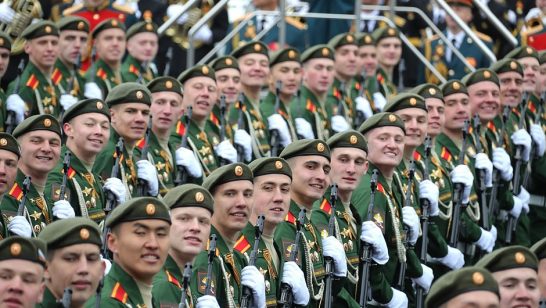
Creating “the conditions for a world without nuclear weapons”, a goal endorsed by NATO leaders at the 2010 Lisbon Summit, will remain an empty box if the Deterrence and Defence Posture to be adopted by the Chicago Summit in May contains no real substance on arms control. Failure to concretize NATO’s commitment in this area will also disappoint the international community presently engaged in a new cycle of the Nuclear Non–Proliferation Treaty (NPT) review process.
In addition to an evolution on the question of US “sub-strategic” nuclear weapons stationed in Europe, progress in Chicago should include assurances not to use nuclear weapons against countries which have renounced such weapons: so-called negative security assurances (NSAs). Countries having joined the NPT as non-nuclear weapon states are fully entitled not to be attacked or threatened with nuclear weapons. Since NATO itself does not possess such weapons, it cannot formally give these assurances. Nothing, however, prevents the Alliance from including this issue in its general declaratory policy.
As a global player, NATO increasingly needs UN backing and legitimization for its “out of area” operations and remains under UN and NPT scrutiny on arms control issues. Progress and coherence on NSAs, mainly championed by the Non Aligned Movement, would not only strengthen the NPT but also improve NATO’s multilateral standing.
There have been helpful recent changes in this regard which must be built on.
In its 2010 Nuclear Posture Review, the US introduced new strengthened assurances not to use or threaten to use nuclear weapons against non-nuclear weapon states that are party to the NPT and in compliance with their nuclear non-proliferation obligations. Any state eligible for the US assurances that uses chemical or biological weapons against the US or its allies and partners would face the prospect of a “devastating conventional military response” but, in principle, not a nuclear response. For states possessing nuclear weapons or not in compliance with their obligations, there remains a “narrow range of contingencies in which US nuclear weapons may still play a role in deterring a conventional or CBW attack against the US or its allies and partners”.
The United States, the document goes on, will continue to strengthen conventional capabilities and reduce the role of nuclear weapons in deterring non-nuclear attacks “with the objective of making deterrence of nuclear attack the sole purpose of U.S. nuclear weapons”. This is altogether a significant evolution from previous, more ambiguous US positions. A similar approach was subsequently announced by the United Kingdom.
NATO nuclear weapons states (France , the UK and US) are already committed to negative security assurances through their individual statements noted in Security Council Resolution 984 of 1995. They are also committed not to use nuclear weapons against countries belonging to the nuclear weapons free zones established since 1967 when the Latin American and Caribbean countries decided to ban nuclear weapons from their territories. The countries of the South Pacific, South East Asia, Africa and Central Asia followed suit. Since 2010, all NATO countries are also bound by the NPT consensus “..to assure non nuclear weapons states against the use or threat of use of nuclear weapons “ and do not exclude “an internationally legally binding instrument”.
Given that the supreme guarantee of the security of the NATO Allies is provided primarily by the strategic forces of the United States, the new US declaratory policy is “de facto” already applicable to NATO. Therefore, the Alliance should have no difficulty in adopting the new US and UK approach to negative security assurances or in declaring that the fundamental purpose of nuclear weapons is to deter the use of such weapons by others. This is a far cry from a “no first use” policy, but a step towards the concept of deterrence of nuclear attack as the “sole purpose” of nuclear weapons. It would bolster non-proliferation , improve relations with non nuclear weapons states and enhance NATO’s standing at the UN and in the NPT process.
Moreover, enhanced negative security assurances would result in a reduction in the number of potential targets for nuclear warheads and this in turn would diminish the need for nuclear weapons and thus promote their further reductions. This is undoubtedly an outcome worth pursuing.
Ambassador Carlo Trezza is the former Italian Permanent Representative for Disarmament in Geneva and is also a member of the UN Secretary General’s Advisory Board for Disarmament Matters.
The opinions articulated above represent the views of the author(s), and do not necessarily reflect the position of the European Leadership Network or any of its members. The ELN’s aim is to encourage debates that will help develop Europe’s capacity to address the pressing foreign, defence, and security challenges of our time.


